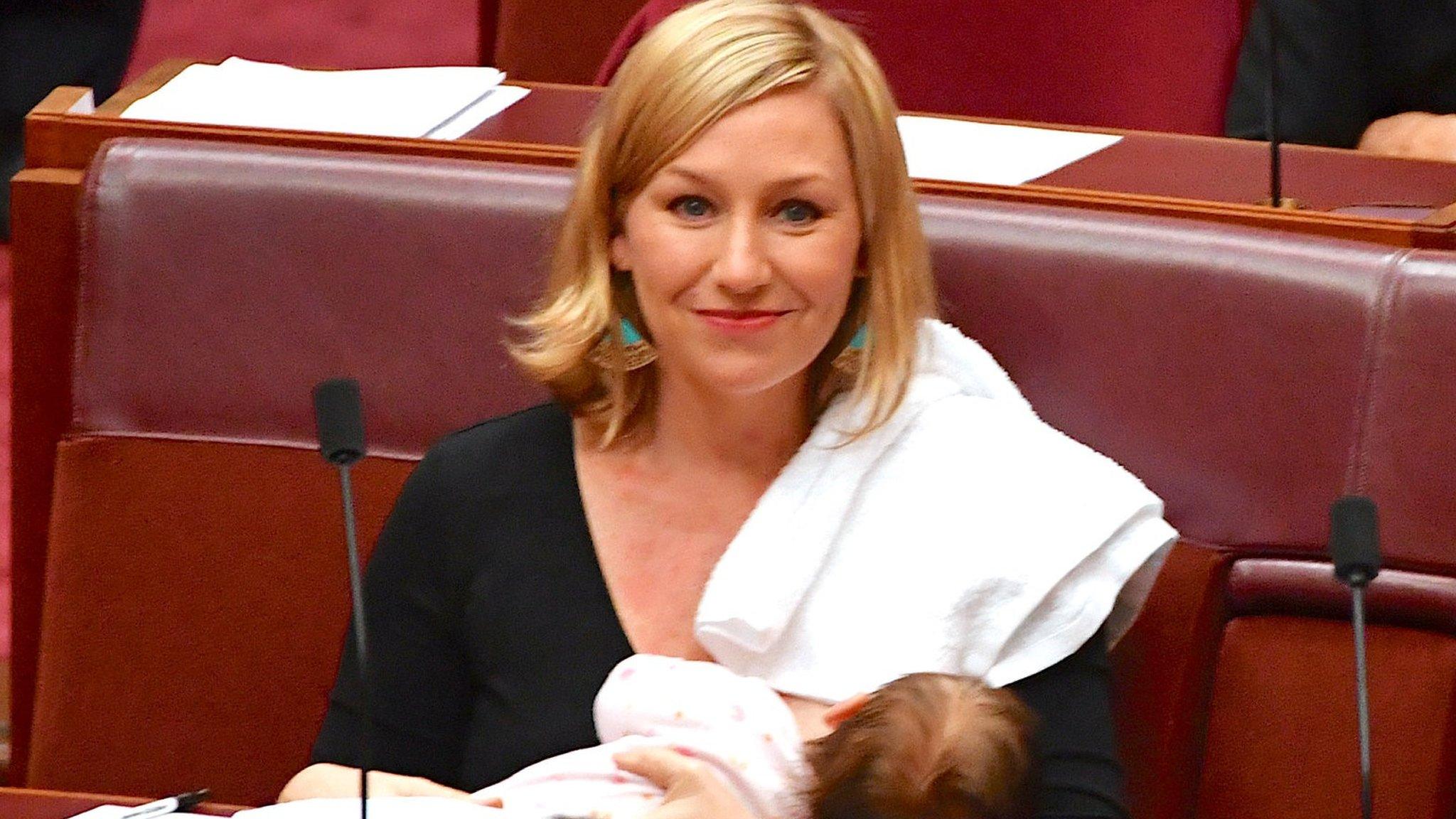Teach pupils about breastfeeding, say Royal College doctors
- Published
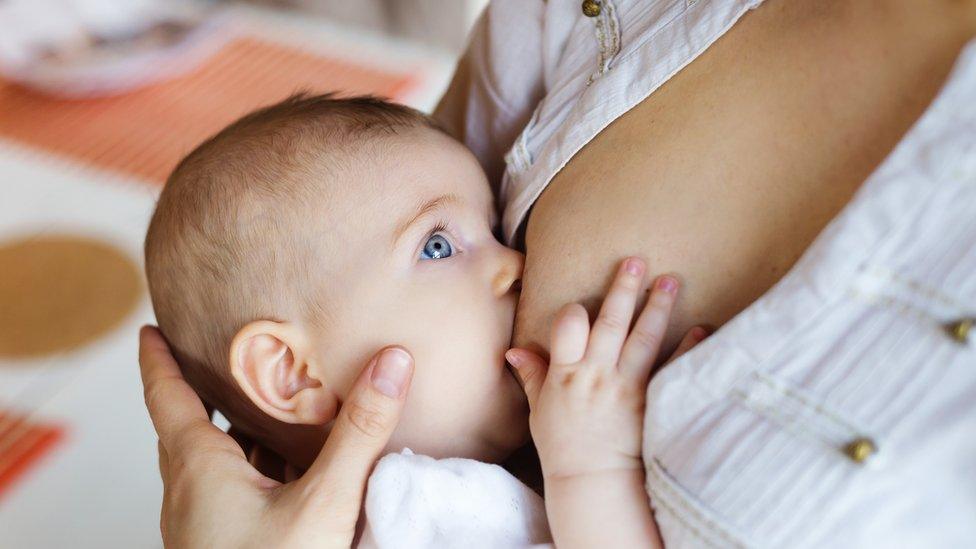
Schoolchildren should be taught about the importance of breastfeeding, doctors say.
The Royal College of Paediatrics and Child Health says the UK has one of the lowest rates of the practice in Europe - with just a third of babies receiving breast milk at the age of six months.
They argue breastfeeding in public is still "often stigmatised".
The Royal College recommends the subject is covered in personal, social and health education (PSHE) classes.
It advises that mothers should be encouraged and supported to breastfeed exclusively for up to six months, with solid food introduced from six months, ideally alongside breastfeeding.
'Yucky'
Professor Neena Modi, the Royal College's president, said too few babies were being breastfed and it was up to the government, families and schools to get the country out of a "blackspot".
Children needed to understand more about breastfeeding, she said.
The first stage was to expose very young children to mothers, aunties and family friends doing it so it became normal and natural, she said.
Then, schools should teach children about, for example, the evidence that breastfeeding was good for the health and why it could be difficult or easy, she added.
Both boys and girls should be in the lessons, as partners can do "an awful lot" to help by being supportive and involved, said Prof Modi.
Currently PSHE is not a statutory part of schools' curriculums, although that will be consulted on this autumn. Schools which do teach the subject largely decide what they wish to teach.
"When we asked groups of children and young people what they thought about breastfeeding, we were really surprised - and a little bit upset - to hear the word 'yucky' being used by them," Prof Modi said.
"Clearly the perception that we, as a society, are giving children, is not the perception we want them to be getting."
She added: "Regrettably the attitudes of a large part of society mean breastfeeding is not always encouraged; local support is patchy, advice is not always consistent and often overly dogmatic, support in the workplace not always conducive to continued breastfeeding.
"And perhaps, most worryingly, breastfeeding in public is still often stigmatised. It is no wonder that for many mothers, there are too many barriers."
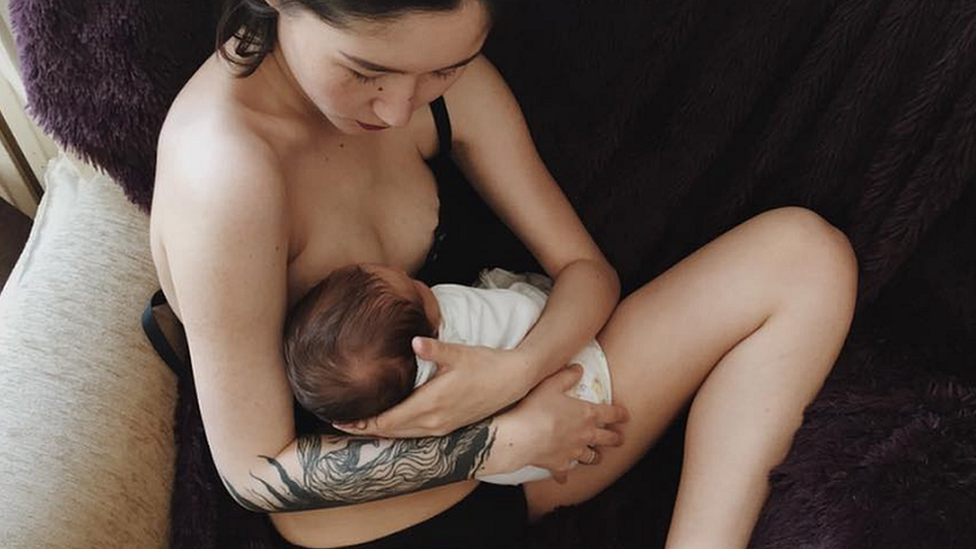
A photo of the Kyrgyz president's daughter feeding her baby sparked a debate about breastfeeding last week
Anna Whitehouse, a parenting blogger on Mother Pukka, said she was not uncomfortable breastfeeding in public but could understand others who were.
"That's not their fault," she said. "We're not educated that it's a normal thing - it's not in biology classes.
"Suddenly it's just a thing that you do, and people are expected to just go, 'Oh, that's normal.'"

Your views
Natalie Penrose told BBC News it was "an amazing idea to introduce children at school to the idea of breastfeeding".
"I am still breastfeeding my 22-month-old daughter on demand and I would love to see this being the norm instead of something that is frowned upon. I can't imagine why more women aren't convinced to carry on."
However, Helen, a teacher and parent, said there was "little point" telling mothers why they should breastfeed - "we all know this is best".
"Health professionals need to understand that it's a small minority of women who actually choose to bottle feed and most switch to this because they haven't been given the best support.
"It can be very difficult - stop pretending it isn't and support mothers with the practicalities."
Fiona said she wasn't able to produce enough milk when her daughter was born.
"I tried breastfeeding - of course I did - but the sheer pushiness and abrupt manners of breastfeeding experts who visited me in the cubicle put me off asking for help.
Lorna Pedersen said women are already told they are "selfish, lazy or ignorant" if they are either unable to breastfeed, or make a different choice.
"To make vulnerable women feel like they are failing at the very start of their parenting journey is not only despicable and cruel it is completely unnecessary."

'Overwhelmed and exhausted'
In a separate survey of 1,030 mothers of children under five, external, the most common reasons why mothers stopped breastfeeding were found to be:
The baby wasn't latching on to the breast properly (56%)
Worry that not enough milk was being produced (42%)
Pain (39%)
Being overwhelmed and exhausted, and something having to give (34%)
Difficulty with expressing breast milk (32%)
Worry the baby was not gaining enough weight (24%)
Nearly three-quarters agreed with the statement that there was too much emphasis on telling women why they should breastfeed, and not enough on supporting them to do it.
For those still breastfeeding at six weeks, face-to-face help from a healthcare professional or a breastfeeding counsellor was considered the most effective intervention.
Justine Roberts, founder of Mumsnet which carried out the poll, said: "There's no sense in endlessly telling women that they must breastfeed, but letting them down when they have a baby in their arms.
"Breastfeeding is a skill, and most mothers need support when they hit a problem, especially given that they are often shattered, sore and sleep-deprived.
"The guilt, anger and sadness experienced by many mothers who switch from breastfeeding is palpable, and it's deeply unfair to leave so many feeling that they've failed."
Other recommendations from the Royal College's paper released at the start of World Breastfeeding Week include:
Ministers to legislate for breastfeeding breaks and facilities in all workplaces suitable for breastfeeding and expressing breast milk
Local breastfeeding support to be planned and delivered to mothers
Public Health England to develop a national strategy to change negative societal attitudes to breastfeeding
It also wants the government to reinstate the UK-wide Infant Feeding Survey, which was cancelled in 2015.
Only 34% of babies were receiving some breast milk at six months, compared with 49% in the US and 71% in Norway, according to medical journal The Lancet, external. At a year, this figure fell to 0.5%.
The Royal College points to Unicef research that concludes even moderate increases in breastfeeding could save the NHS up to £40m a year through fewer GP consultations and hospital admissions.
- Published30 July 2017
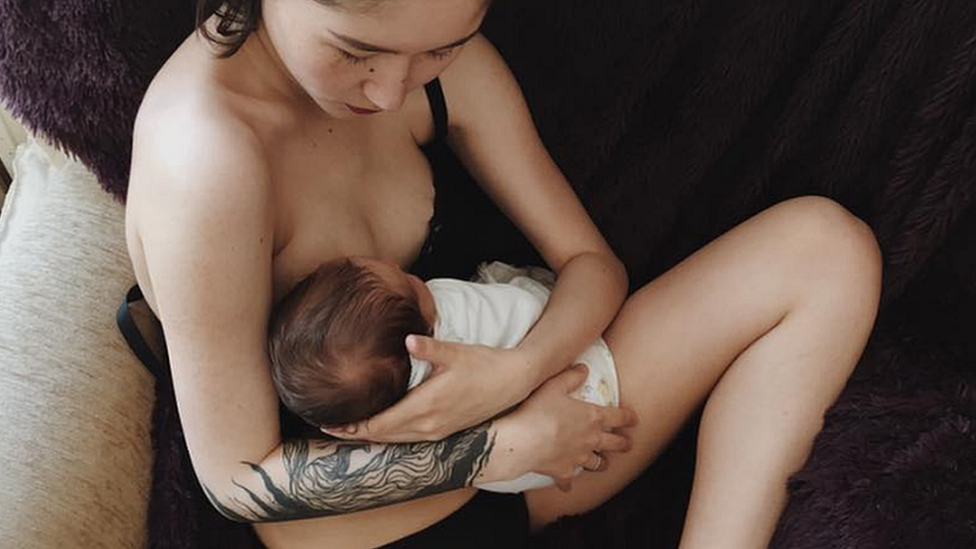
- Published11 May 2017
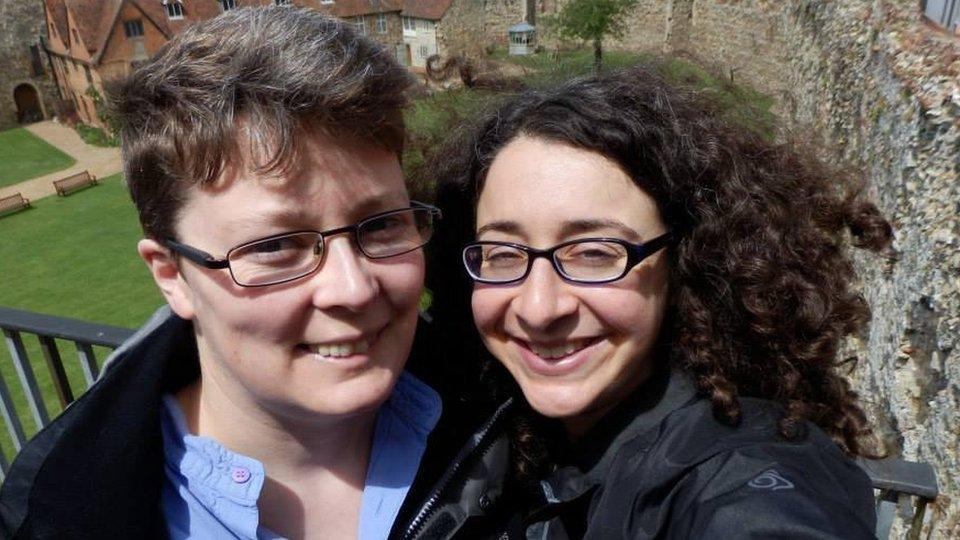
- Published12 February 2017
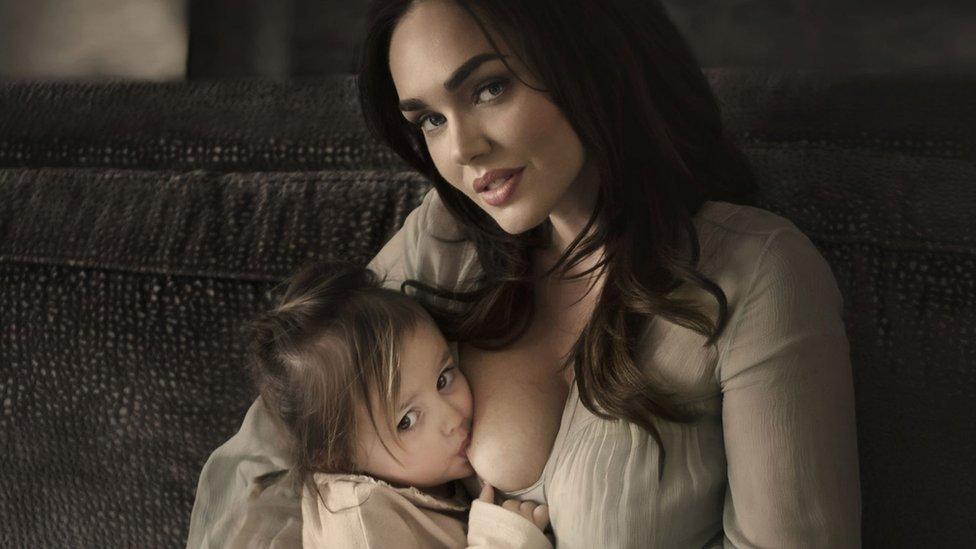
- Published10 May 2017
